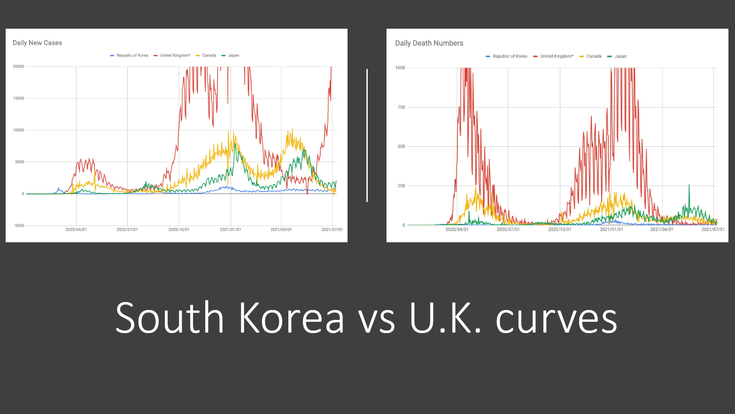Asia Against COVID-19
Talking Asia Politics - Korea Fighting COVID-19

In this episode, Ms. El Eunyoung Lee, a partner at Excolo, a consulting firm in Singapore, talked about the evolution of the Covid-19 pandemic in South Korea. South Korea has acted quickly and effectively through its experience with the 2015 epidemic. It adopted the strategy of the three T's "Test, Track & Treat." Firstly, with early mass testing, South Korea was able to keep track of infections and act quickly. Secondly, in order to visit restaurants, hairdressers or other establishments in Korea, people have to check-in through a QR code at the entrance, which leaves a digital footprint. Through this method, it is easier to inform people if there has been a Corona virus outbreak and thus should get tested. According to Ms. Lee that in most Western countries, including Germany, this would not be feasible because of data protection issues. Due to the MERS epidemic, where similar to the coronavirus, there were high numbers of infections and no vaccinations. Therefore, many people were infected with the MERS virus in the hospitals, to prevent this in the current pandemic, the government has established separate clinics that treat only Covid-19 patients, so that no other patients get infected. In addition, the National Health Insurance Scheme (NHIS) covers most of the costs of PCR testing or treatment against covid-19.

On the contrary, this knowledge also came in handy for South Korea. It assumed that the current crisis would improve on its own within a few months, as it did in 2015, and therefore did not join the race for vaccines from the beginning. This is now becoming clear a year after the start of the pandemic, South Korea's infections are rising with the new Corona mutations and only 30% of the population is vaccinated and there is a major shortage of vaccine. The measures are effective and are also being adhered to by most of the population, however this may change quickly if S. Korea does not find a solution to procure vaccine soon. The pandemic is also leaving a clear mark on the Korean economy, while the service industry is collapsing, the high-tech industry and the KPOP industry are growing with new developments and virtual concerts.
In conclusion, Ms. Lee added that through this, South Korea should learn to operate more in the international framework and cultivate partnerships, which could be drawn upon in times, such as the vaccine shortage. The pandemic should also have taught South Korea not to rely too much on the old ways, but to evaluate each crisis individually and adapt in case of emergency.
You can access the full report here.
